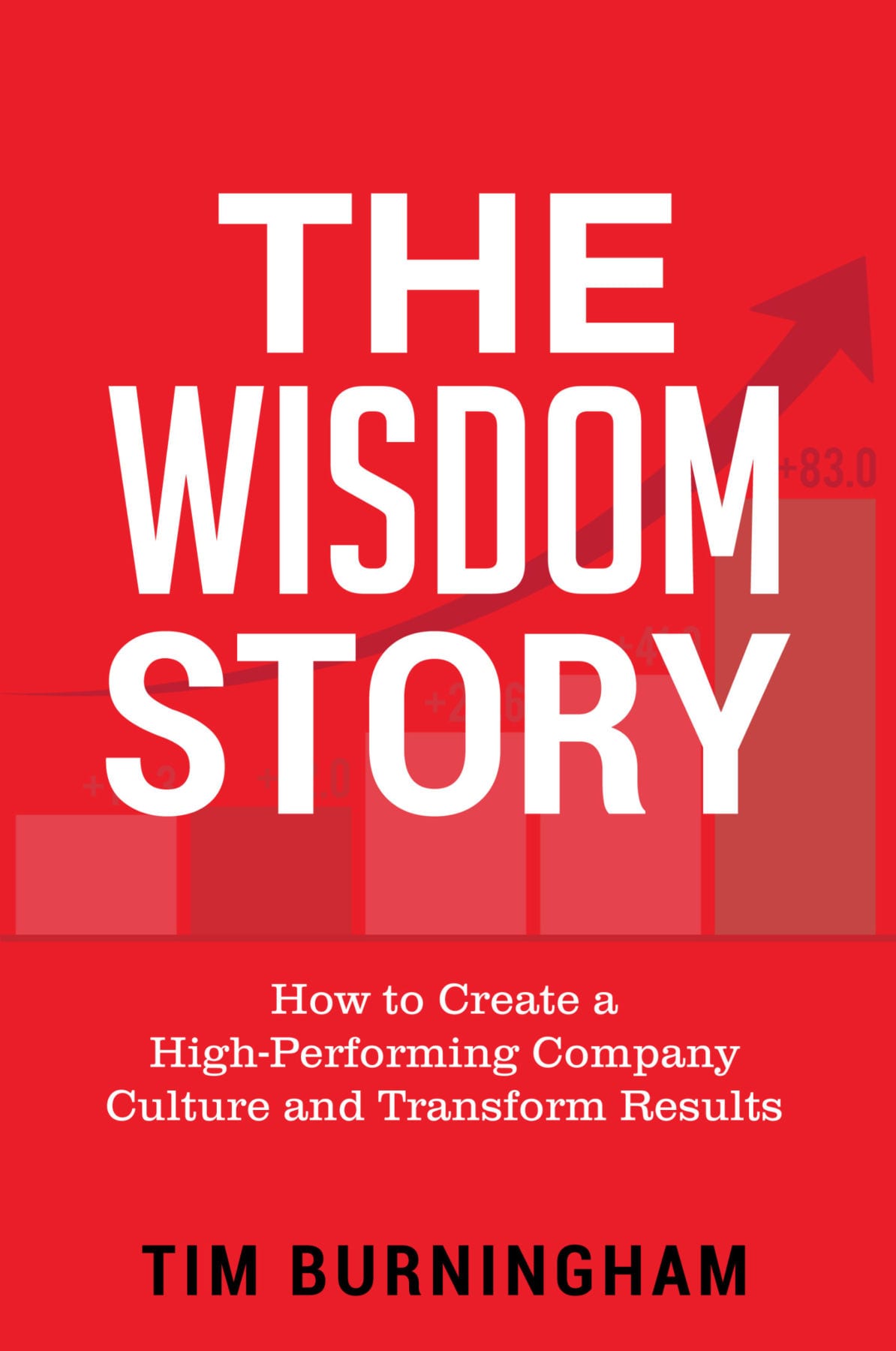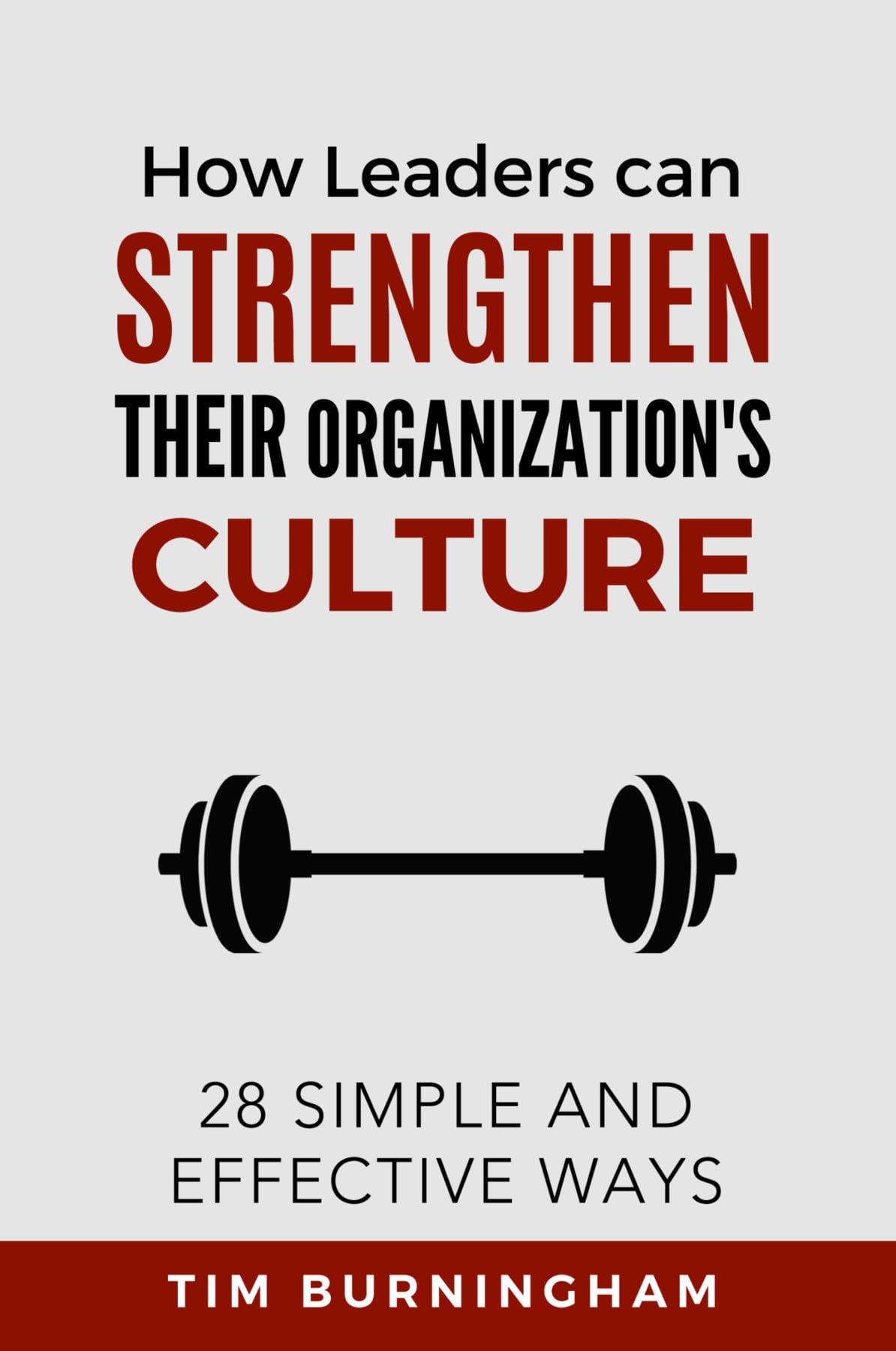In this podcast, Tim explains the most important thing needed to build a great team is trust. He describes why trust matters so much, and what you can do to nurture it so that your team always functions at a high level. He’ll also share how trust influences and improves organizational culture as well as how it relates to The Four C’s Model. Don’t miss out on this important episode on teamwork!
Learn step by step how you can build a high-performing culture. Check out our new course, 90-Days to a High-Performing Company Culture.
Transcript
I’m Tim Burningham and this is the Culture guide podcast.
Hello everyone and welcome to episode nine of season four of The Culture Guide Podcast.
It’s hard to believe we’re nearing the completion of our fourth season of the podcast, and I’d just like to thank you for listening and for your support during all of our seasons here at The Culture Guide Podcast.
As a reminder, this podcast exists to help you create an amazing company culture, and we believe an amazing company culture can transform the results within any organization.
Now before we begin today, I’d like to quickly remind you of a new website we’ve created: BeAnAwesomeBoss.com. This website’s name comes from my book entitled Be an Awesome Boss, The Four C’s Model to Leadership Success. This new website includes a lot of free resources and tools that can help you create a healthy company culture. So if you haven’t checked it out yet, I’d strongly encourage you to go and do that.
What is Most Important for Teamwork?
So today I’d like to begin with a question.
That question is…What is at the heart of teamwork?
If you had to put your finger on one thing that helps foster teamwork, what would it be now?
There may be a few good answers here, but one of them would have to be trust. Teamwork begins with trust. Trust among teams helps the team work better, more efficiently, and more collaboratively. When team members trust each other, results always improve.
So have you ever been a part of a team that lacked trust? So what was that like?

Really, I held back a lot and was really cautious. So at the end of the day, it wasn’t a pleasant experience. And perhaps you’ve had similar experiences.
Now I’ve also had experiences that have been just the opposite. I’ve been a part of teams where people really trusted each other, where we could count on each other, where we could talk openly with each other, where we could call each other out and not have hurt feelings…where we could discuss issues and not become offended because we knew we all had the same purpose or the same mission that we were dedicated to that mission and purpose as a whole.
So trust is crucial for good teamwork. When team members trust one another, when there’s a high level of trust among a group of individuals, it has a huge impact on that team’s ability to function, to get along, and to get work done. And really, it leads to high levels of performance when there’s high levels of trust.
Different Kinds of Trust
Now there are different kinds of trusts. There is what I call inferred trust, which is I trust that my coworkers will come to work today or I trust that this person will provide good customer service. But that’s not the kind of trust that nurtures relationships and fosters good teamwork.
The trust that improves good teamwork is called vulnerability based trust.
So what is that?
Vulnerability based trust is a willingness by the team members to be vulnerable with each other.It’s a willingness to say things like…I don’t know or gosh, I messed up, I’m sorry or I don’t know how to do this. Can you help me? Or you know what? I think you’re better at this than me. Maybe I should let you help on this. Or I don’t think I understand. Can we discuss this further …or I don’t fully agree with you. I think we need to talk this one out.
When a team is willing to be vulnerable with each other, like some of these examples that I shared earlier…when they’re willing to open up and share all their wounds and weaknesses and insecurities and opinions and thoughts. This is when teamwork and camaraderie can really begin to flourish.
If there’s a trust issue on your team, it usually comes down to an unwillingness to open up to one another and to be vulnerable. So I want you to think about this…I want you to evaluate yourself.
Are you vulnerable with your team?
Are you willing to air your dirty laundry and admit it when you make a mistake?
Are you willing to share that you don’t know something or that you need help?
The best leaders are willing to be vulnerable and the best teams are also vulnerable with one another.
Now, the best way to create vulnerability based trust among a team is for the leader to start. The leader has to set the example. When a leader is willing to be vulnerable and open up and expose themselves and to share their weaknesses and shortcomings and opinions and thoughts others will follow. When a leader however, is unwilling to do this and prefers invulnerability, the team will respond to that as well and as a result they remain stuck at only reaching and inferred levels of trust at best…and then they’ll never be able to operate and achieve the results they could achieve if they had those high levels of vulnerability based trust.
What Trust Isn’t
Now, some people mistakenly assumed trust means that you know what we don’t call each other out or push each other question each other because we trust one another. This isn’t vulnerability based trust, and I’m not sure it’s really trust at all.
Rather, real trust, vulnerability based trust is knowing that when someone calls you out or questions you or challenges you, you know they’re doing it for the good of the team or for the good of the organization. Team members who trust each other in this way really produce the best results.
Trust and Company Culture
So what does this have to do with culture? Now if it isn’t obvious, trust is an important part of establishing a healthy company culture. When team members don’t trust the leader they work for or they don’t trust the team they’re part of, or they don’t trust the organization they belong to then a culture will be hammered. It won’t be as strong or as healthy as it ought to be, or could be with high levels of vulnerability based trust.
Now remember, the way to build this type of trust is for the leader to go first. A leader must be willing to be vulnerable and then others will follow.
Trust and The 4 C’s Model
So how does trust fit into The 4 C’s Model to create a healthy organizational culture?
Being vulnerable in my mind is part of clarity. When a leader hides her mishaps or weaknesses or flaws, it hurts clarity, which is the foundation to a healthy company culture.
Likewise, when team members are unable or unwilling to share opinions, concerns or thoughts, it hurts clarity and it demonstrates that a lack of trust exists among the team. So creating clarity by being open, honest, transparent and vulnerable builds this important kind of vulnerability based trust.
Consistency is also another way to enhance vulnerability based trust.
When a leader and company is consistent with being vulnerable and it doesn’t go back and forth on… it’s OK to be vulnerable today, but in this setting or in this meeting we aren’t vulnerable.
Again when leaders are encouraged to be vulnerable under any circumstance and in any setting then it can build consistency…or consistency can build higher levels of vulnerability based trust .
When people know they can count on you because of your level of consistency, trust grows.
Celebration adds to trust as well.
When people know they’ll be acknowledged, recognized, and even rewarded for their contributions and the value they add to the organization ,then trust grows.
Finally, charity is important for building vulnerability based trust as well.
When we share our honest feelings, when we can show we care for others even when they disagree with us, even when they make mistakes…even when they call us out or are flawed, it builds trust.
When we can care for our people…even if we might get burned or hurt by them through a sudden resignation or by an unfortunate mishap or mistake from a team member. Again, it builds trust.
So each C in The 4 C’s Model to create a healthy company culture helps leaders foster the kind of trust needed for good teamwork. And trust in turn enhances each of the C’s in the model. Thus trust and the four C’s are very interrelated.
As you focus on the C’s, you build trust, and as you work on vulnerability based trust, you help establish the C’s. In fact, I believe it is impossible to improve trust without positively impacting at least one of the C’s in the four CS model just as it is impossible to establish the C’s without enhancing and improving trust. They are interconnected and all of this leads to a healthy company culture that transforms results.
So if you want good teamwork in your organization then develop vulnerability based trust by being willing to be vulnerable first and by implementing each of the 4 C’s to create a healthy company culture.
Thanks for listening to our podcast today on Trust. If you haven’t left our podcast a review on iTunes then please please take some time to do it today. Also, please share this podcast with a friend and if we can help your team or organization develop, trust and strengthen your organization’s culture, please reach out to us at TheCenterForCompanyCulture.com or you can check out my book called Be An Awesome Boss which is available on Amazon. Also remember to access our free resources and tools to help you create a healthy company culture at being awesome boss.com that’s BeAnAwesomeBoss.com.
And thanks for tuning in. I hope you have an amazing day. And I’ll catch you next week.











Leave A Comment
You must be logged in to post a comment.